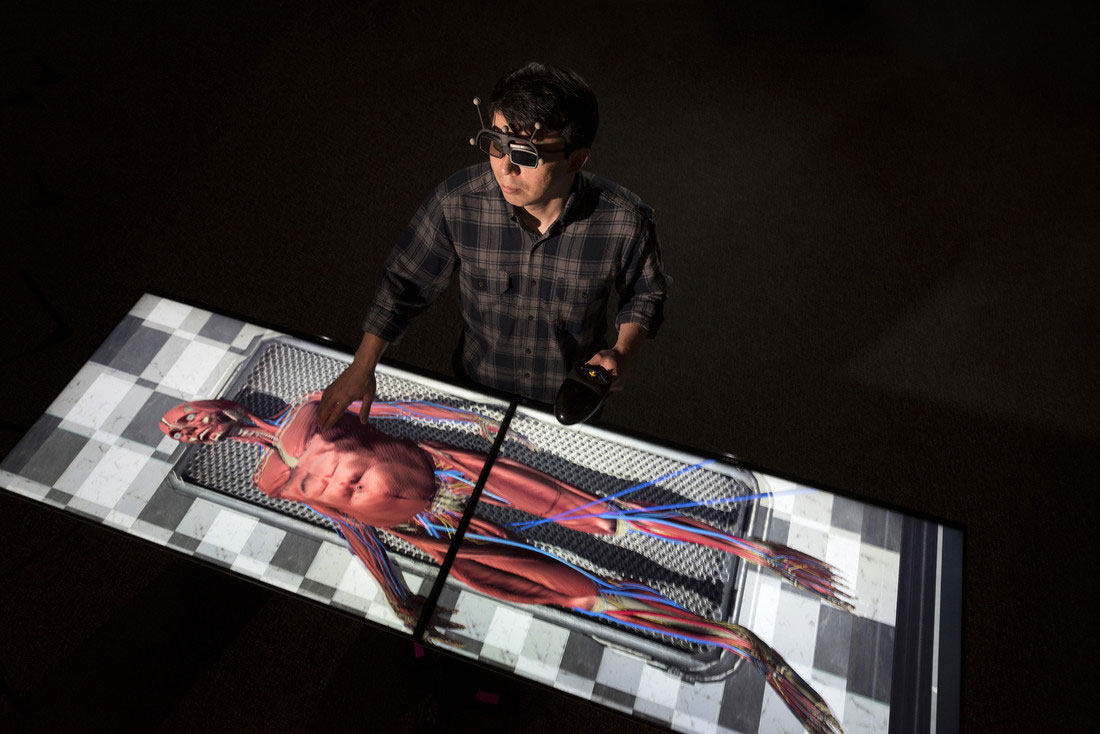Volunteers sought to test virtual cadaver program
Students at the University of Arkansas at Little Rock are helping to test a new program in development at the Emerging Analytics Center that lets users conduct basic anatomy training in a virtual environment.
Dr. Carolina Cruz-Neira, director of the Emerging Analytics Center and interim chair of the Department of Computer Science, and her team of researchers have developed the Anatomic Eyes Project, an interactive cadaver dissection program in which users can dissect a life-size cadaver using simple pinch gestures.
This virtual cadaver allow users, both medical professionals in training and non-medical experts, to get a better understanding of the structure and components of a human body by replacing the experience of dissecting an actual human body with a virtual reality counterpart.
The Emerging Analytics Center is currently seeking students, faculty, and staff and members of the public who are least 18 years old to help test the Anatomic Eyes Project in a 3D interactive training environment.
Volunteers are needed to participate in 30-minute sessions between 9 a.m. and 5 p.m. March 26-31 and April 2-6 in the George W. Donaghey College of Engineering and Information Technology Room 418.
“No experience is required to participate in this virtual reality experiment,” said Ramiro Serrano, a doctoral student in computer science who is conducting the experiment. “We will teach people how to use the devices before the experiment. We believe this a great opportunity to introduce virtual reality into the fields of medicine and biology and to experience the use of these virtual reality and augmented reality technologies.”
Participants will experience Anatomic Eyes on the VR-Table, a precision tool that enables forensic examiners to acquire data from mobile and GPS-enabled devices and other electronic units, and the Microsoft HoloLens, a mixed reality headset that allows people to engage with digital content by interacting with holograms.
Complete the online form to sign up for a testing session. For more information, contact Ramiro Serrano at rxserranove@ualr.edu.
In the upper right photo, Emerging Analytics Center Student Researcher Ramiro Serrano Vergel dissects a virtual corpse on the Immersive virtual reality table at the EAC center. Photo by Lonnie Timmons III/UA Little Rock Communications.
